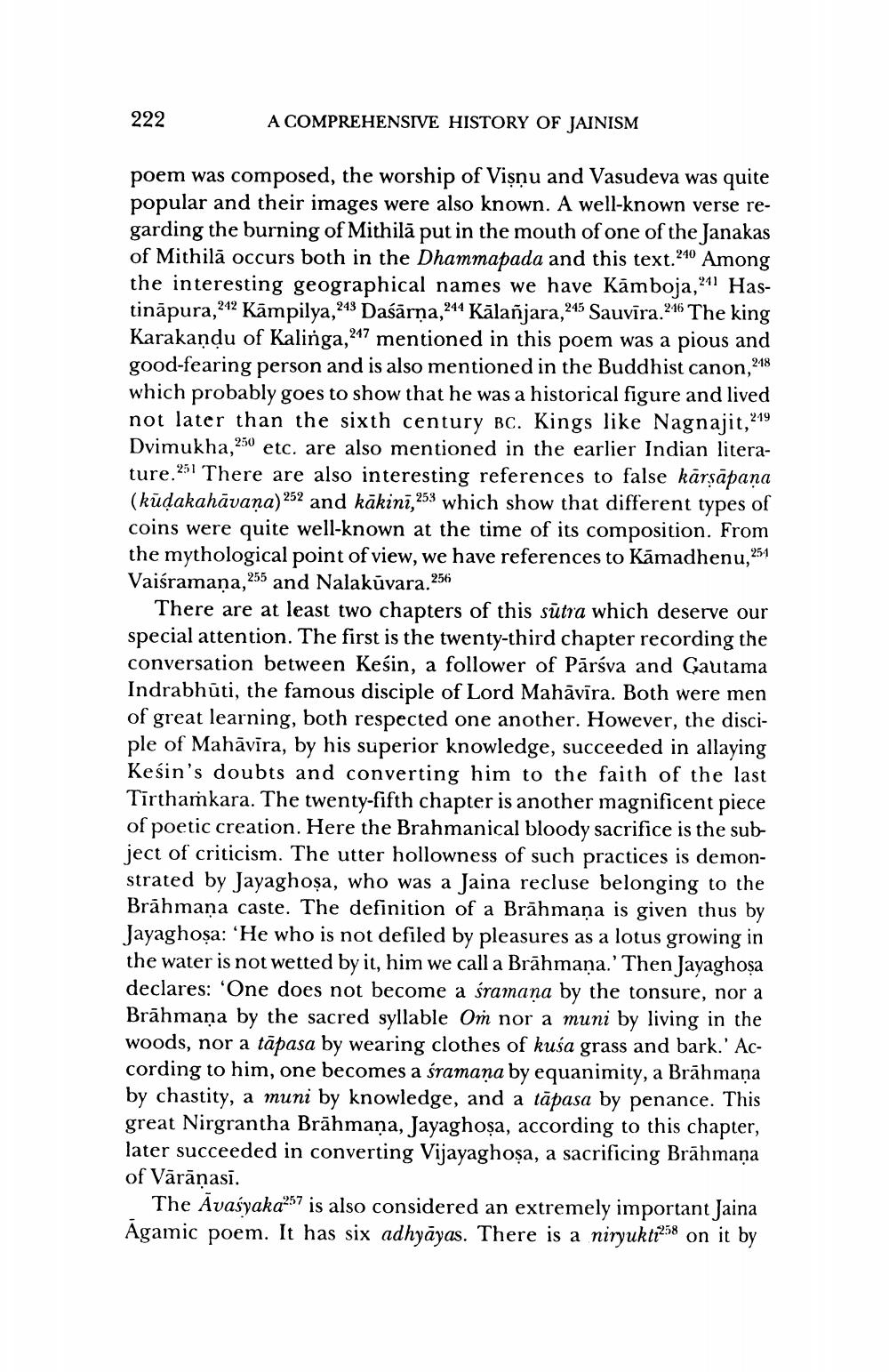________________
222
A COMPREHENSIVE HISTORY OF JAINISM
poem was composed, the worship of Viṣnu and Vasudeva was quite popular and their images were also known. A well-known verse regarding the burning of Mithila put in the mouth of one of the Janakas of Mithila occurs both in the Dhammapada and this text.240 Among the interesting geographical names we have Kamboja,241 Hastinapura,242 Kampilya,243 Daśārņa,244 Kālañjara,245 Sauvīra. 246 The king Karakaṇḍu of Kalinga,247 mentioned in this poem was a pious and good-fearing person and is also mentioned in the Buddhist canon, 248 which probably goes to show that he was a historical figure and lived not later than the sixth century BC. Kings like Nagnajit,24 Dvimukha,250 etc. are also mentioned in the earlier Indian literature.251 There are also interesting references to false kārṣāpaṇa (kūḍakahāvana) 252 and kākini,253 which show that different types of coins were quite well-known at the time of its composition. From the mythological point of view, we have references to Kamadhenu,251 Vaiśramana,255 and Nalakuvara.256
219
There are at least two chapters of this sutra which deserve our special attention. The first is the twenty-third chapter recording the conversation between Kesin, a follower of Pārśva and Gautama Indrabhūti, the famous disciple of Lord Mahāvīra. Both were men of great learning, both respected one another. However, the disciple of Mahāvīra, by his superior knowledge, succeeded in allaying Kesin's doubts and converting him to the faith of the last Tirthamkara. The twenty-fifth chapter is another magnificent piece of poetic creation. Here the Brahmanical bloody sacrifice is the subject of criticism. The utter hollowness of such practices is demonstrated by Jayaghosa, who was a Jaina recluse belonging to the Brāhmaṇa caste. The definition of a Brāhmaṇa is given thus by Jayaghosa: 'He who is not defiled by pleasures as a lotus growing in the water is not wetted by it, him we call a Brahmana.' Then Jayaghoṣa declares: 'One does not become a śramana by the tonsure, nor a Brāhmaṇa by the sacred syllable Om nor a muni by living in the woods, nor a tāpasa by wearing clothes of kusa grass and bark.' According to him, one becomes a śramana by equanimity, a Brāhmaṇa by chastity, a muni by knowledge, and a tapasa by penance. This great Nirgrantha Brāhmaṇa, Jayaghoșa, according to this chapter, later succeeded in converting Vijayaghosa, a sacrificing Brāhmaṇa of Vārāṇasī.
The Avasyaka257 is also considered an extremely important Jaina Agamic poem. It has six adhyayas. There is a niryukti258 on it by




